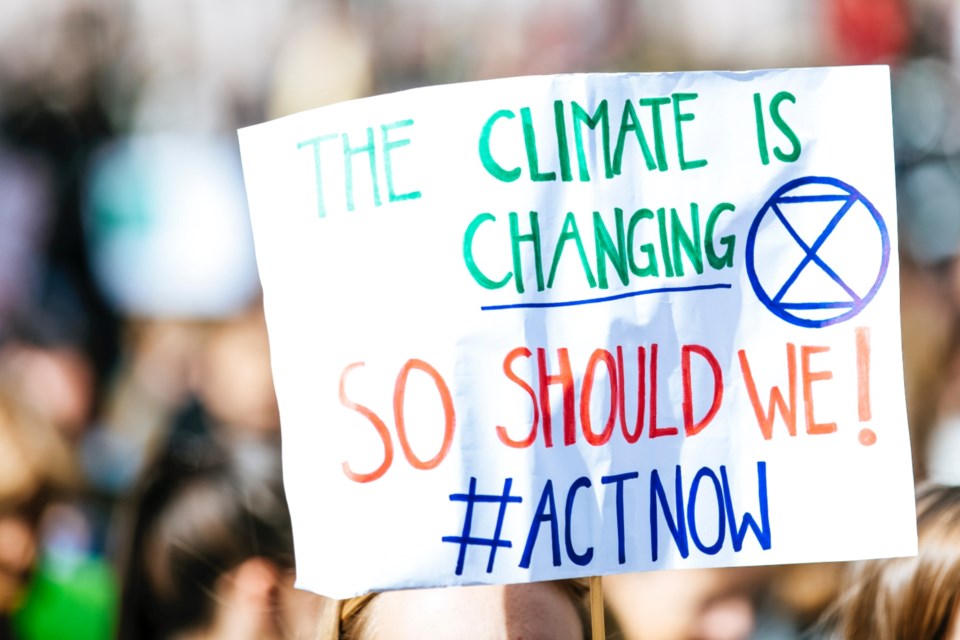In partnership with Climate Change Newmarket-Aurora, AuroraToday brings you a regular series of columns aimed at creating awareness and engaging our community to take action on climate change.
If there is ever a realm where the collective spirit can make a difference, it’s politics.
We might say, “They’re all the same, so what’s the point?” Climate change is the point. Though cynicism exists, the urgency now must transcend political boundaries.
Our voices, signatures and votes are crucial and as noted by attendees of the Climate Action Newmarket-Aurora (CANA) town hall, Climate Action — Can I Actually Make a Difference? Political engagement can be empowering, enhance well-being, and foster a sense of accomplishment and peace of mind.
Though not initially considering myself a political activist, I now see engaging in politics as essential for climate action. Political decisions shape climate policy’s pace and direction. Navigating the complexities can be daunting, but trusted organizations provide guidance and it gets easier with practice.
Despite hopeful pledges at global climate meetings like United Nations COPs and GEF, politicians, developers, corporations and economists must be held accountable for agreements and actions, for the real climate value of what they are planning and for the impact on Indigenous communities and our children.
Reducing greenhouse gas emissions should unite us for the common good. Community members at the town hall emphasized cutting emissions is not only cheaper and faster but also promotes better health. With 500,000 hectares of Canadian forest literally up in smoke by fire this year and record carbon emissions from last year’s fires, the urgency should be clear to everyone. Accelerating reforestation and transitioning to clean energy should not be a political or ideological question at this point, nor should we sacrifice nature for sprawl development.
The Intergovernmental Panel on Climate Change warns we must reduce greenhouse gases to keep global temperatures below a critical 1.5 C increase. We are at 1.52 C now. Political obstacles are stalling meaningful climate action and threatening vital carbon sink ecosystems like woodlands and marshlands.
In Ontario, emissions are rising due to recent provincial decisions. Cancelling more than 750 alternative energy projects, the moratorium on offshore wind, promoting urban sprawl through 44 minister’s zoning orders from 2019 to 2021 (double the previous 18 years), and altering environmental legislation to allow development on sensitive land are key factors.
Plans for Greenbelt highways and gas plant expansions, despite a lack of municipal support and evidence indicating a 400 per cent increase in gas plant emissions by 2030, worsen the situation. There are housing and traffic solutions that don’t sacrifice our needed natural assets and clean air.
What else can we do? “You can’t be neutral on a moving train,” as Howard Zinn said. We must actively work to reduce the climate emergency or risk being part of the problem through inaction.
Persistent advocacy is worth it. Look at the Greenbelt reversal. The auditor general’s special report emphasizes the need to monitor government actions, understand legislation that endangers the environment, and recognize how political decisions can undermine democratic processes.
Even if we feel anxious or unsure, contacting MPs, MPPs, and municipal councillors, especially receptive ones, amplifies lobbying efforts and drives change. Discussing concerns with others is also impactful.
Following our town hall event, 15 more people expressed intent to attend protests or join organizations like CANA, with more than 20 committed to writing to politicians.
CANA offers pre-written email content. Local environmental organizations like those that contributed to our town hall — Environmental Defence, the Rescue Lake Simcoe Coalition, FROGS, the Alliance for a Liveable Ontario, and Gasp4Change — provide petitions and templates requiring minimal effort. Participating in peaceful climate protests and petitions such as those on July 13 and Aug. 10, also raise awareness.
Legislative change requires effort and often takes longer than desired, so voting is crucial. In Ontario’s last election, less than 44 per cent of eligible voters participated, allowing a government to gain a majority that only represents 18 per cent of voters. We need to use our votes wisely to elect a government committed to addressing climate change, especially when our collective, majority voice continues to go unheard.
Say “yes” to empowering our voices, being heard through our signatures and votes, and collaborating with receptive politicians. As Maya Angelou said, “Do the best you can until you know better. Then when you know better, do better.” Let’s do better together for emissions reduction. The children are counting on it.
Inspired by the international organization Project Drawdown, Climate Action Newmarket-Aurora seeks to engage citizens, institutions, and policymakers in actionable and measurable solutions to stop catastrophic climate change as quickly, safely and equitably as possible. You can contact them at [email protected], and follow them on Facebook and Instagram.


